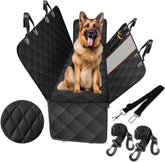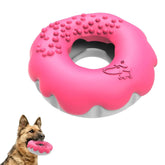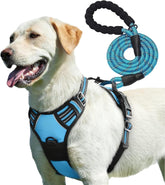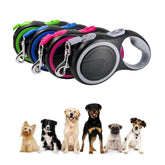Okay, real talk — summer’s great and all, but it can be rough on our four-legged besties. If you ever found yourself wondering, “Can dogs get heat stroke?” then here’s something you need to know.
While we’re reaching for cold drinks or blasting the AC, our dogs are panting like crazy, wondering what the heck is going on. And if we’re not careful, things can go from “just a hot day” to heat stroke before we even realize it.
Scary, right? But don’t worry — you’re here, and that means you care. Let’s walk through everything you need to know about heat stroke in dogs treatment at home and how to keep your pup safe when the sun’s blazing.
What Exactly Is Heat Stroke in Dogs?
Heat stroke in dogs isn’t just a little overheating — it’s when their body temperature gets dangerously high and their natural cooling system (mostly panting) just can’t keep up. The dog temperature regulation gets overwhelmed, and that can lead to serious trouble like organ failure, dehydration, or worse.
Dogs don’t sweat like we do. Most of their cooling happens through their tongue and paw pads. When it’s hot and humid, that’s just not enough. And certain breeds (looking at you, bulldogs and pugs) are more prone to it.
What Causes Heat Stroke in Dogs?
A few things can trigger it — and yep, some of the signs of heat stroke in dogs are:
- Being left in a car (even for a “quick minute”)
- Exercising in the heat without breaks or water
- Lack of ventilation — like a hot, closed room or crate
- High humidity that makes it hard to pant and cool down
Basically, if you feel miserable outside, your dog’s probably feeling worse.
Signs Your Dog Is Overheating
Dogs can’t say, “Hey, I feel weird,” so you have to look for the signs.
Heat stroke symptoms in dogs are as follows:
- Intense panting or drooling
- Bright red gums or tongue
- Stumbling or acting disoriented
- Vomiting or diarrhea
- Just collapsing, like their energy switch flipped off
If any of this sounds familiar, take action fast. Your dog isn’t being dramatic; these are the simple signs your dog is too hot and might be in real danger.
How to Treat Heat Stroke in Dogs at Home
If you even suspect heatstroke in dogs, don’t wait and get these dog cooling tips to work. Here’s what you can do to perform heat stroke dogs treatment at home while you prepare to get to the vet:
Get Them Somewhere Cool — Fast
First, get your pup out of the sun. Bring them inside with a fan or sit under a shady tree if you’re out. The idea is to stop the heat from getting worse.
Offer Small Sips of Cool Water
Let them drink slowly — don’t pour it down their throat, and no ice water, as that can actually cause their system to freak out. Just a little bit at a time, and you can also use a pet water bottle to help them sip gradually and stay hydrated safely.
Cool Them Down Gently
Use a wet cloth or towel and apply it to areas like their belly, paws, armpits, and neck. Don’t dump a bucket of ice water on them — that can be a shock to their body.
Use a Fan if You Can
A fan helps evaporate the moisture and cool them down more effectively. It’s like nature’s air conditioner — but faster.
Call Your Vet, No Matter What
Even if your dog seems better after cooling down, you still need a vet visit. Heatstroke in dogs can cause internal damage that’s not obvious right away.
How to Prevent Heat Stroke in Dogs
We love our dogs too much and would try everything not to let this happen twice. The best thing you can do? Prevent it altogether.
Here’s your everyday summer checklist:
- No car rides unless you’re getting out together
- Early morning or evening walks — skip the noon heat
- Always carry a dog water bottle (yes, they make those!)
- Give your dog access to shade and fresh water
- Consider a dog cooling mat or vest if they’re heat-sensitive
If it’s too hot for you to walk barefoot outside, it’s too hot for your dog’s paws, too.
Best Ways to Cool Down a Dog Quickly
If you notice these dog overheating symptoms then you need to act fast:
- Wet a towel with cool (not cold) water and drape it over their back or belly
- Soak their paws gently, especially the pads
- Use a fan or AC
- Let them rest somewhere calm and shady
Remember, slow and steady. You want their body temperature to come down gradually.
When to Take Action Immediately
Some heat stroke in dogs cases go beyond at-home care. Call your vet or rush to an emergency clinic if your dog:
- Can’t stand or collapse
- Has seizures
- Is vomiting blood
- Has a body temp over 104°F that’s not going down
Always remember it’s better to take vet's opinion rather than feeling that you are overreacting. It just simply shows you’re being a responsible dog parent.
Wrapping It Up
Here’s the truth — summer doesn’t have to be scary if you’re prepared. You know the signs, the steps to perform first aid for heatstroke in dogs, and the preventive tricks now. That makes you one awesome dog parent.
So when the temperature rises, make sure your dog’s got shade, water, and lots of love. And if things go sideways, act fast, stay calm, and call your vet.

















